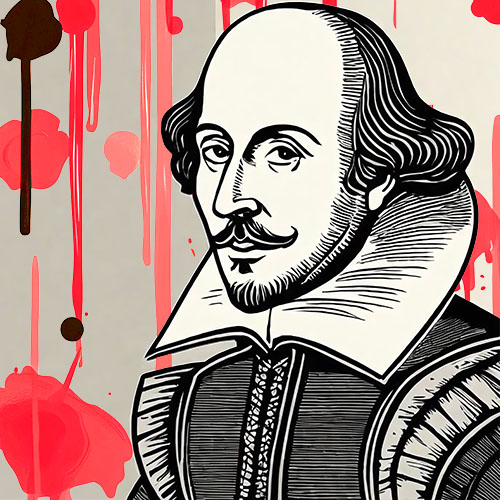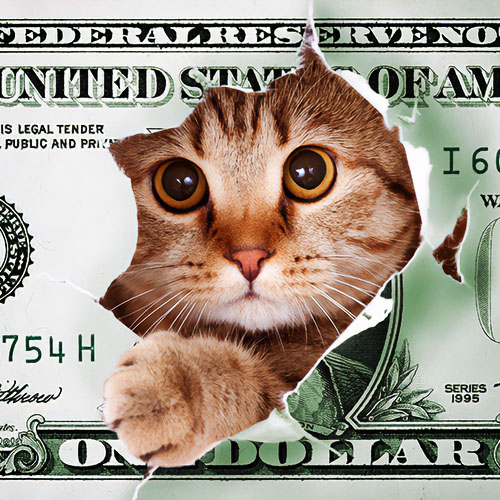A look into that time the Dutch folk roasted and ate the livers of their leaders. [expletive deleted]
The Dutch Mob Who Tried Cannibalism
We are fortunate indeed, we who in the 21st century live in nations where politics are conducted in an orderly and well-mannered fashion. We consider, for a moment, cannibalism as a political statement.
Now, of course, there are many people in many countries who would argue with the suggestion that their political system is orderly, and millions who would take issue with well-mannered. But in historical terms, we live in a golden age of respectful public debate and electoral stability, as evidenced by the fact that it’s well over four centuries since the citizens of a major Western power killed and ate their national leader.
Yes, there is quite a story there, so we skip back to the 17th century, when the Netherlands was a powerful trading and seafaring nation — a far cry from the adorable flowery little spot with an economy entirely dependent on André Rieu DVDs that it is today.
These were the days of the flourishing Dutch Republic, a federation of the seven provinces of the Netherlands, the largest and most powerful of which was Holland. (Yes, Holland is only one part of the Netherlands, not the whole country. Amaze your friends by whipping out that bit of knowledge.) And the most powerful man in Holland — and therefore the most powerful in the whole republic — was the raadpensionaris, or Grand Pensionary, Johan de Witt.
De Witt was made pensionary in 1653 and helped guide the republic to increasing wealth and clout. But no powerful man is ever without enemies, and in de Witt’s case, they were some real doozies.
Opposed to de Witt — and the republican cause he spearheaded — was the House of Orange, the Dutch noble family that had ruled the Netherlands. But it was waning in power following the smallpox death of William II of Orange in 1650, two days after the birth of his namesake son.
De Witt’s republicans worked assiduously to keep the Oranges from accruing influence and make sure William III would grow up to serve the state rather than take control of it.
De Witt succeeded in ruling the republic for almost 20 years, but in 1672 things turned ugly. The Dutch still refer to 1672 as the Rampjaar or Disaster Year.
In this year, both England and France attacked the Dutch Republic, which — thanks to 20 years of focusing on its sea power — had a notably weak army. The English and French, being from more populous nations with lots of terribly mean soldiers, therefore easily stormed the country, and the people began to think maybe their Grand Pensionary wasn’t all he was cracked up to be.
The pro-royal Orangists, not worrying about how silly their name sounded, saw their chance and took it. On June 21, de Witt was wounded by a knife-wielding wannabe assassin. On Aug. 4, he resigned, hoping that might sate his enemies’ bloodlust. His hope was in vain.
Johan’s politician brother Cornelis was arrested on charges of treason, which were about as well-founded as 99 percent of treason charges throughout history, i.e. not at all. Cornelis was tortured and sentenced to exile, and his brother came to the jail in The Hague to help him start his trip far away from the Dutch Republic and the ingrates who’d screwed over them both.
As it happened, though, the Orangists weren’t satisfied with the sober judgment of the law. The Hague’s local militia attacked the de Witt brothers at the jail and shot them both. They then left them to the tender mercies of a frenzied Orangist mob that had gathered. Stripped naked and mutilated, the bodies were strung up in the public square, at which point the mob began to act in what might be called bad taste.
There in The Hague on Aug. 20, the Dutch people settled in for a feast. To be specific, they roasted and ate the livers of both Johan and Cornelis. Many historians believe this to be a low point in Dutch history, and certainly it’s true most people’s assessments of the Dutch national character tend not to include revolutionary cannibalism. Why they felt the need to devour the flesh of their erstwhile leaders cannot be said. Even in those brutal times, mobs tended to be satisfied with the desecration of corpses, without chowing down on them. One might simply surmise Johan had really pissed some people off.
The whole affair ended in the ascent of William III to power over the Dutch Republic, and thence to the throne of England, Ireland and Scotland. That was certainly a fortunate coincidence for him, since he had stayed out of the conflict entirely and had absolutely no part in inciting or aiding the agitators in any way, and anyone who says he did is a dirty liar. Still, he may have occasionally in later life felt a slight queasiness as he recalled the gourmet dinner which had precipitated his rise.
Well that certainly creates a gruesome twist on your basic liver paté for sure. Best we not in any way duplicate this effort, lest judgement fall down upon our collective pate, however. … You could take you mind completely away with a look into the entire lineage of the Crown in England. By the time you get to the bottom of that page, you might begin to feel better about American politics — as divisive and horrible as it can be. On the other hand, maybe not.



















